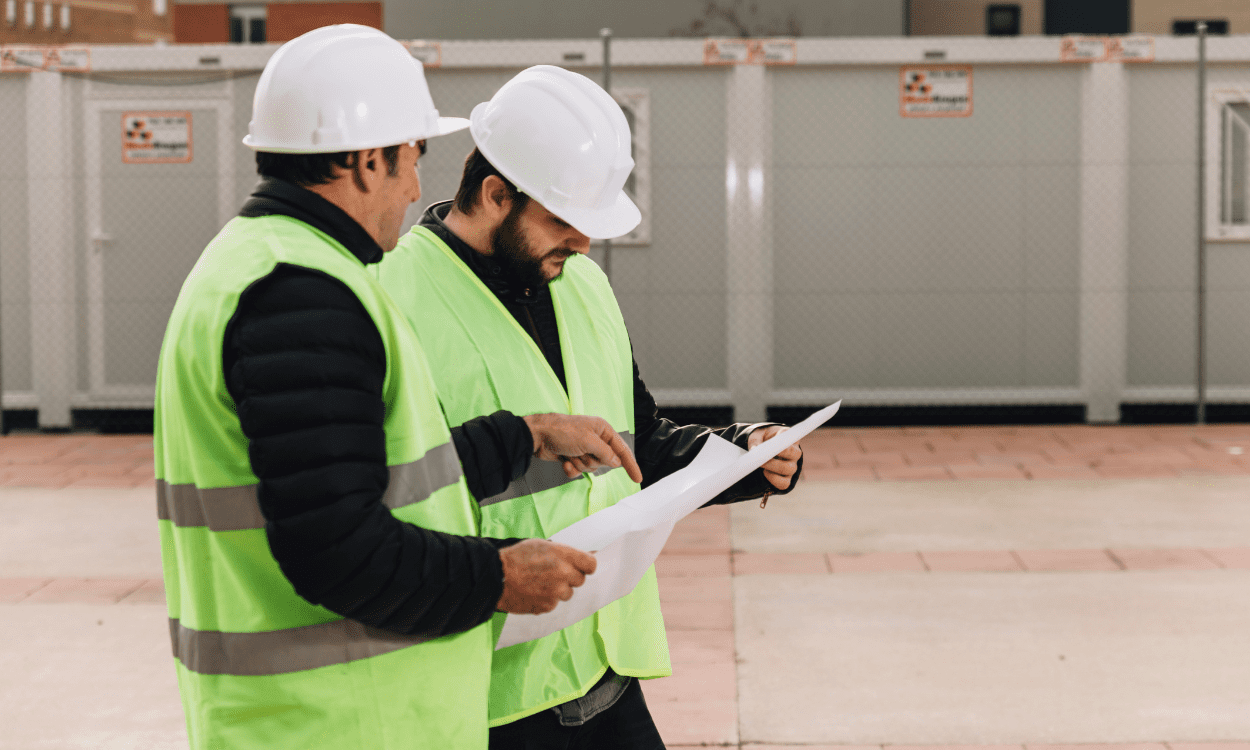All businesses and large organisations require a number of different processes and facilities to be effectively managed in order to run efficiently. But how can these businesses stay on top of all of these things? That’s where facilities management comes in. Facilities management comprises a range of responsibilities, from ensuring the safety and functionality of physical spaces to optimising resources and enhancing the overall workplace experience.
In this article, we’ll explore the facilities management meaning, gain a better understanding of its key components, and discuss its significance in various industries.
What is facilities management?
Facilities management is the process of ensuring buildings and grounds are functional, safe and efficient. It can incorporate a range of different things, including maintenance and operations, real estate or lease management, energy management and employee or occupant management.
What are the different types of facilities management?
There are two different types of facilities management – hard facilities management and soft facilities management – each covering different things.
Hard facilities management
Hard FM is the process of managing and maintaining the physical infrastructure within a building. Typically, this includes operating mechanical, electrical and plumbing systems. Here at GreenSmart, we offer a specific plumbing facilities management service, encompassing everything from routine maintenance and repairs to system upgrades and emergency response.
Soft facilities management
Soft FM includes a range of services that improve the comfort and productivity of those using the facility. It can include things such as security, grounds maintenance and commercial cleaning maintenance.
Why is facilities management important?
Facilities management is an important factor in ensuring the operational efficiency of your building and the safety and happiness of its occupants. The introduction of the 1992 Workplace (Health, Safety and Welfare) Regulations means that it is now the responsibility of the property owner to ensure the health, safety, and welfare of their building’s occupants. This includes FM services such as plumbing, electrics, temperature control, security, and lighting.
Facilities management is important for landlords and business owners for a number of reasons:
- Optimising resources: Effective facilities management ensures that resources, including physical space, equipment, and utilities, are used efficiently, which can help to minimise waste and reduce operational costs.
- Ensuring safety and compliance: Facilities managers are responsible for maintaining a safe and compliant environment for occupants and visitors.
- Supporting business continuity: By proactively addressing maintenance issues, and managing facility-related risks, facilities management services help organisations to reduce disruptions.
- Enhancing productivity and well-being: A well-maintained and comfortable environment can improve the satisfaction and productivity of employees and occupants.
- Preserving asset value: Proper maintenance of facilities help to preserve their value, extend their lifespan and protect the organisation’s investment.
People spend 87% of their time in buildings, so it is vital that they feel happy, secure and safe whilst they’re in them.
How facilities management can adapt to changing workplace dynamics
The traditional workplace is always evolving, driven by factors such as digital transformation and changing workforce demographics. As a result, facilities management is having to adapt to accommodate these shifts and support new ways of working.
Flexible work arrangements, such as remote working, have become increasingly common – especially since the Covid-19 pandemic. This shift has meant that facilities management teams need to focus on creating environments that foster collaboration, innovation, and employee well-being, whether in the office, at home, or in shared co-working spaces.
On top of this, since the pandemic, there is an increased emphasis on health and safety measures within the workplace. Facilities management plays an important role in implementing systems that reduce health risks and ensure the well-being of occupants.
Sustainability in facilities management
In recent years, there has been a growing emphasis on sustainability within the realm of facilities management. Businesses are increasingly aware of their environmental impact and are seeking ways to reduce it. Sustainable facilities management involves implementing practices, such as green plumbing, that minimise resource consumption and reduce waste.
By integrating sustainability into facilities management strategies, businesses can not only reduce their carbon footprint but also reduce their energy bills.
How GreenSmart can help
At GreenSmart, we specialise in providing high quality plumbing solutions for commercial and industrial facilities. We understand the challenges and demands that come with managing plumbing systems in large-scale properties, and our experience as plumbing contractors enable us to handle all aspects of plumbing facilities management.
Our proactive approach focuses on preventive measures, identifying potential issues before they escalate and implementing efficient solutions to minimise downtime and disruptions. With our expertise and dedication to excellence, you can trust us to keep your plumbing systems operating smoothly, allowing you to focus on your core business operations.
Contact us today to discover how our plumbing facilities management service can help you!
